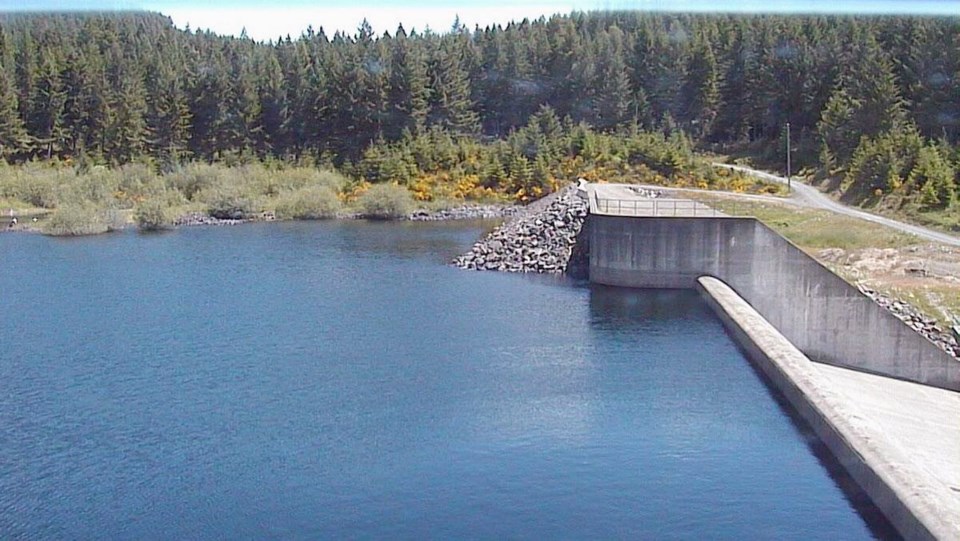As British Columbians begin taking tentative steps to re-emerge from lockdown, the question of “what happens now?” is front of mind.
So many aspects of our lives have been upended in the past few months — employment, food security, health, childcare, education. Such uncertainty is deeply unsettling, and the comfort of a simple “return to normal” is alluring. But this is not the time to reflexively go back to what was.
Many communities and the public at large are taking a hard look at whether that old normal was good enough and if, instead, we can “build it back better.”
The unprecedented actions and sacrifices during the past months have literally saved lives. This was a crisis response and we did well, especially here in B.C.
The actions we take in the coming weeks and months, as we rebuild for a better future, will be just as important. We must begin an unprecedented program of recovery that supports a transition to a more secure future.
Water and healthy functioning watersheds are the basis of our most fundamental needs: Drinking water, sanitation, food production, climate resilience and economic activity, from tourism to resource extraction to small business.
As B.C. transitions to post-acute crisis recovery, water security will not be an optional consideration or something simply “nice to have.” Rather, investing stimulus funding in watersheds is a crucial investment in British Columbians’ long-term health and security.
The COVID-19 crisis arrived at a time of mounting public and professional alarm about risks to our water and public health and security. Floods, droughts and safe, clean drinking water were already on our minds (and, indeed, disrupting many British Columbians’ lives) before the compounding fears of a global pandemic.
The provincial government itself has named the problems: Last year, it identified water shortages as top climate risks facing B.C. The gravity of the situation is only amplified by a recent report from the auditor general identifying “grave concern” with drinking water protection in the province.
A key lesson from COVID-19 is the need for early action. In B.C., we didn’t wait for the pandemic to take hold before enacting bold measures. Early action and precaution saves lives – this is true with pandemics, climate change, and water security. The costs of waiting until profound droughts, floods, contamination and fires upend the lives of British Columbians will be severe.
The immediate opportunity in front of us is to invest stimulus funding in projects and programs that bolster watershed resilience. B.C. can learn from New Zealand’s lead here: That country has committed to inject $433 million into regional environmental projects aimed at improving waterways in partnership with local government and farmers.
This program will create 4,000 jobs over the next five years. B.C. can do the same and, indeed, go even further.
Almost $300 million of “shovel-worthy” watershed stimulus projects in B.C. are already identified — including natural infrastructure, restoration, monitoring and education — in communities all around the province.
The projects provide critical jobs to help us get economic recovery underway and can be started immediately, leveraging existing partnerships.
Stimulus investments would flow directly to support Indigenous communities via investments in watershed planning, monitoring, guardian programs, infrastructure and restoration projects — a step toward closing the persistent gaps and inequities in funding and capacity.
B.C. faces a fork in the river with two streams ahead. On the one hand, business-as-usual will see growing watershed damages and costs from droughts, floods and fires — in some cases reaching tipping points with irreparable consequences.
This is the reality in many regions of the world that failed to tackle water issues until it was too late. The costs – human, financial, and ecological – are enormous.
But with crisis comes opportunity, and we have a tremendous opportunity to choose a different path forward.
Throughout the COVID-19 crisis, the government has demonstrated its capacity to take bold action to manage risks. It has demonstrated the strength and vital role of public institutions in responding to crisis, and positioned itself as a global leader.
Government must play a commensurate role in steering B.C. into a post-crisis world by investing in water security: The foundation of building back better.
With smart decisions now, British Columbia will emerge from this crisis stronger than ever: With clean water, food security, climate resilience, community capacity, thriving salmon runs, and increased tourism and recreation opportunities. This, surely, is a new normal worth investing in.
Rosie Simms is a researcher and project manager at the POLIS water project. Oliver M. Brandes is the associate director at the University of Victoria’s Centre for Global Studies and co-director of the POLIS Project on Ecological Governance.



